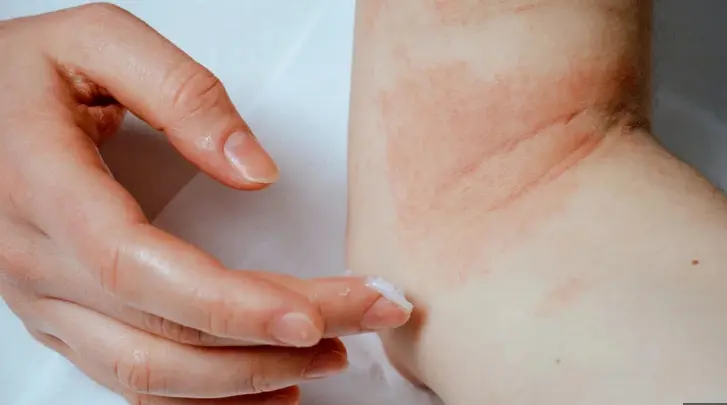
Understanding Eczema
Eczema affects millions of people worldwide, with symptoms ranging from mild to severe. The exact cause of eczema is unknown, but it is believed to result from a combination of genetic and environmental factors. Common triggers include allergens, irritants, stress, and climatic changes. Effective management involves identifying and avoiding these triggers, along with consistent treatment.
Topical Treatments
Moisturizers and Emollients
Moisturizers are the cornerstone of eczema treatment. They help to maintain skin hydration and restore the skin barrier function. Emollients, which are often richer and thicker than regular moisturizers, provide a protective layer on the skin to prevent moisture loss. It's essential to apply moisturizers several times a day, especially after bathing, to keep the skin well-hydrated.
Topical Steroids
Topical corticosteroids are commonly prescribed to reduce inflammation and itching during eczema flare-ups. These come in various strengths, from mild to potent, and are selected based on the severity of the symptoms and the affected body area. While effective, long-term use of topical steroids can lead to side effects, so they should be used under medical supervision.
Topical Calcineurin Inhibitors
Calcineurin inhibitors, such as tacrolimus and pimecrolimus, are non-steroidal medications used to control inflammation and itching. They are particularly useful for sensitive areas like the face and eyelids, where prolonged steroid use might not be suitable. These medications can be used for more extended periods without the risk of skin thinning.
Systemic Treatments
Oral Corticosteroids
For severe eczema that does not respond to topical treatments, oral corticosteroids may be prescribed. These medications are potent and can quickly reduce inflammation. However, due to their potential for significant side effects, they are generally used for short periods during acute flare-ups.
Immunosuppressants
Immunosuppressants such as cyclosporine, methotrexate, and azathioprine can be effective for chronic, severe eczema. They work by dampening the immune system's activity, thereby reducing inflammation. Regular monitoring is required when using these medications due to potential side effects.
Biologic Therapies
Dupilumab is a biologic therapy approved for moderate to severe eczema. It targets specific pathways in the immune system to reduce inflammation and is administered via injection. Biologics have shown promise in providing significant relief for those who do not respond to traditional treatments.
Complementary and Alternative Treatments
Wet Wrap Therapy
Wet wrap therapy involves applying wet bandages over moisturizers and topical medications to enhance their effectiveness. This method can provide rapid relief during severe flare-ups by increasing skin hydration and reducing inflammation.
Phototherapy
Phototherapy, or light therapy, uses ultraviolet (UV) light to reduce inflammation and improve skin health. It is usually considered when topical treatments are insufficient. Phototherapy requires regular sessions and is performed under medical supervision to minimize the risk of skin damage.
Diet and Lifestyle Changes
Certain dietary and lifestyle changes can help manage eczema symptoms. Identifying and avoiding food triggers, such as dairy or gluten, may be beneficial for some individuals. Additionally, stress management techniques, regular exercise, and maintaining a consistent skincare routine can support overall skin health.
Emerging Treatments and Research
Janus Kinase (JAK) Inhibitors
JAK inhibitors are a new class of medication showing promise in treating eczema. They work by blocking specific pathways involved in the inflammatory process. Currently, several JAK inhibitors are undergoing clinical trials, and some have received approval for treating other inflammatory conditions.
Microbiome Therapy
Research into the skin microbiome – the community of microorganisms living on the skin – has led to new potential treatments for eczema. Probiotics, prebiotics, and topical applications of beneficial bacteria are being explored as ways to restore the balance of the skin microbiome and reduce inflammation.
Conclusion
Eczema is a challenging condition, but with the right combination of treatments and lifestyle adjustments, many individuals can achieve significant symptom relief and improved quality of life. It is crucial to work closely with a healthcare provider to develop a personalized treatment plan that addresses individual needs and preferences. As research continues, new and more effective therapies are likely to emerge, offering hope for even better management of eczema in the future.





